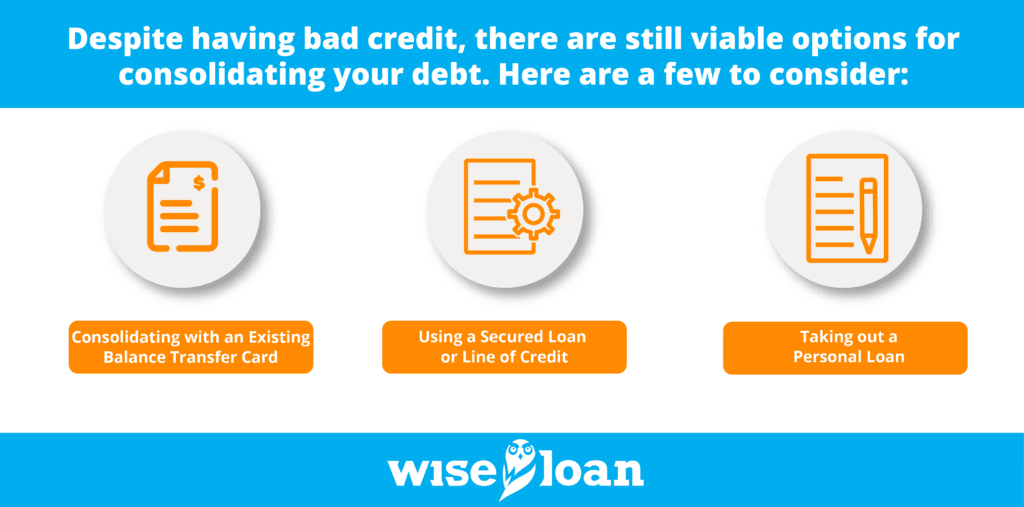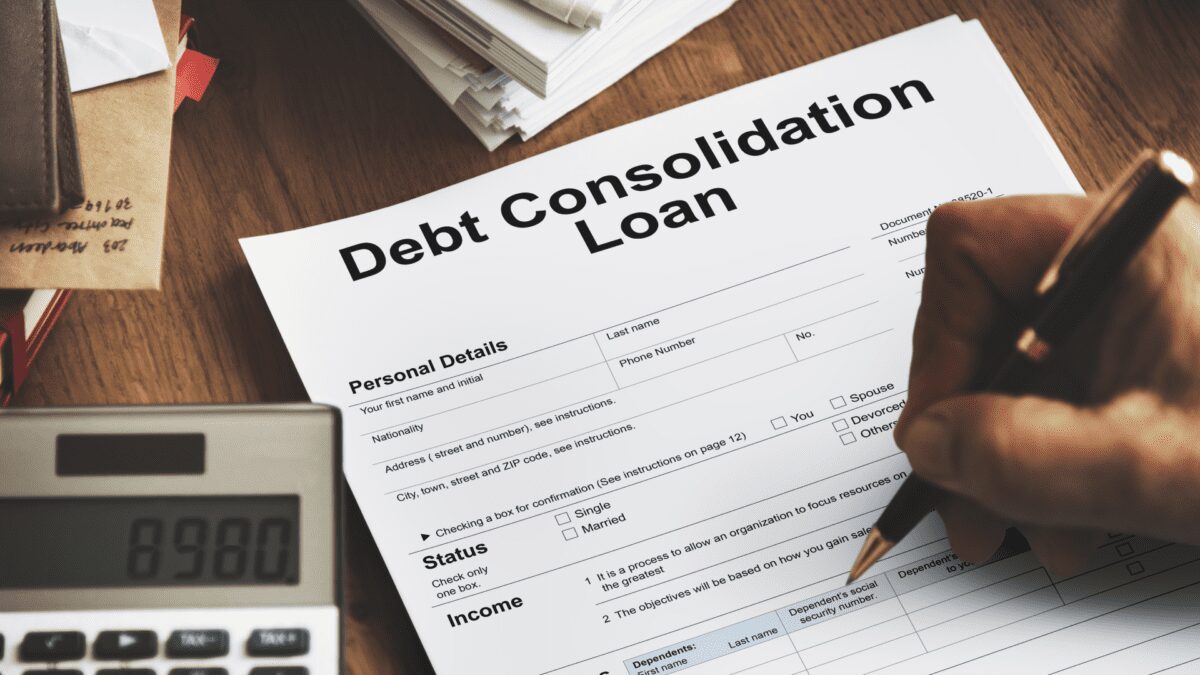Bad Credit Loans for Debt Consolidation
Simplifying your personal finances can be achieved through debt consolidation, which allows some individuals to pay off debts more efficiently using consolidation loans. However, if you have bad credit, you may wonder if debt consolidation is an option for you. Let’s explore the advantages and disadvantages of consolidating debt with bad credit loans, followed by some available options.
Benefits of Consolidating Debt with Bad Credit
Regardless of your credit score, debt consolidation offers several benefits. One of the key advantages is the ability to combine multiple payments into a single one, making it easier to manage and remember. This streamlined approach can help you stay current on your debt and potentially improve your credit history and score if the consolidation lender reports to all three credit bureaus. Another positive aspect is that a consolidation loan may make your monthly debt more affordable by combining high-interest or high-payment loans or credit card balances into a single loan with a lower monthly payment. This improved budgeting can increase the likelihood of making on-time payments.
Potential Drawbacks of Consolidating Debt with Bad Credit
However, there are some potential downsides to debt consolidation, especially if you have bad credit. One such drawback is the risk of “double-dipping,” which can happen to anyone, not just those with bad credit. It occurs when you use a consolidation loan to pay off credit card balances, but you still retain the credit cards, which can lead to accumulating more debt on them, thus adding to your financial burden. To avoid this, it is crucial to exercise discipline and possibly consider closing other accounts to prevent the temptation to use them, even though this may temporarily affect your credit score.
Another disadvantage specific to individuals with bad credit is related to interest rates. If you previously had fair or good credit but now have bad credit, the interest rate on your consolidation loan might be higher than the interest on your current debt. Before applying for and accepting a consolidation loan, it’s important to perform a thorough cost analysis of the debt in the long term, comparing the expenses of consolidating versus keeping the current debt. In some cases, choosing a higher interest rate might be acceptable if it significantly lowers your monthly payments during a financial bind.
Options for Consolidating Debt with Bad Credit
Despite having bad credit, there are still viable options for consolidating your debt. Here are a few to consider:
- Consolidating with an Existing Balance Transfer Card
If you have multiple credit cards, utilizing a balance transfer card with available credit can be an option. By transferring debt from other cards onto this one, you can manage a single account and make one monthly payment. However, exercising restraint is crucial to avoid increasing credit card debt, as this could further damage your credit score.
- Using a Secured Loan or Line of Credit
Obtaining a secured loan or line of credit, backed by collateral such as home equity, can be more attainable for those with bad credit. However, the risk lies in the possibility of losing the collateral (e.g., your home) if you are unable to repay the loan.
- Taking out a Personal Loan
Personal loans can also be used for debt consolidation, offering the advantage of consolidating multiple debts into one loan. Look for lenders who work with individuals with bad credit and check if they support debt consolidation loans.

Considering these options, Wise Loan is a potential solution, as it does not require good credit and offers a quick application process. Applying for a loan can result in receiving an answer within minutes, and if approved, you may receive the funds the same day or the next day. Don’t hesitate to apply for a Wise Loan today.
The recommendations contained in this article are designed for informational purposes only. Essential Lending DBA Wise Loan does not guarantee the accuracy of the information provided in this article; is not responsible for any errors, omissions, or misrepresentations; and is not responsible for the consequences of any decisions or actions taken as a result of the information provided above.
More information on Installment Loans and how they work in your state:











